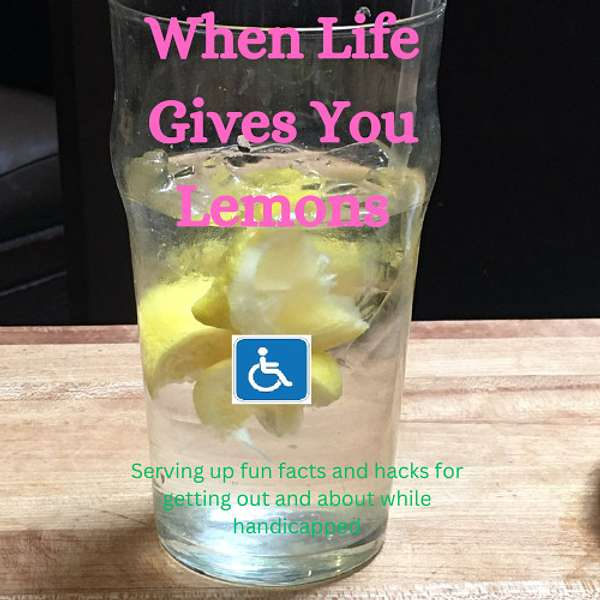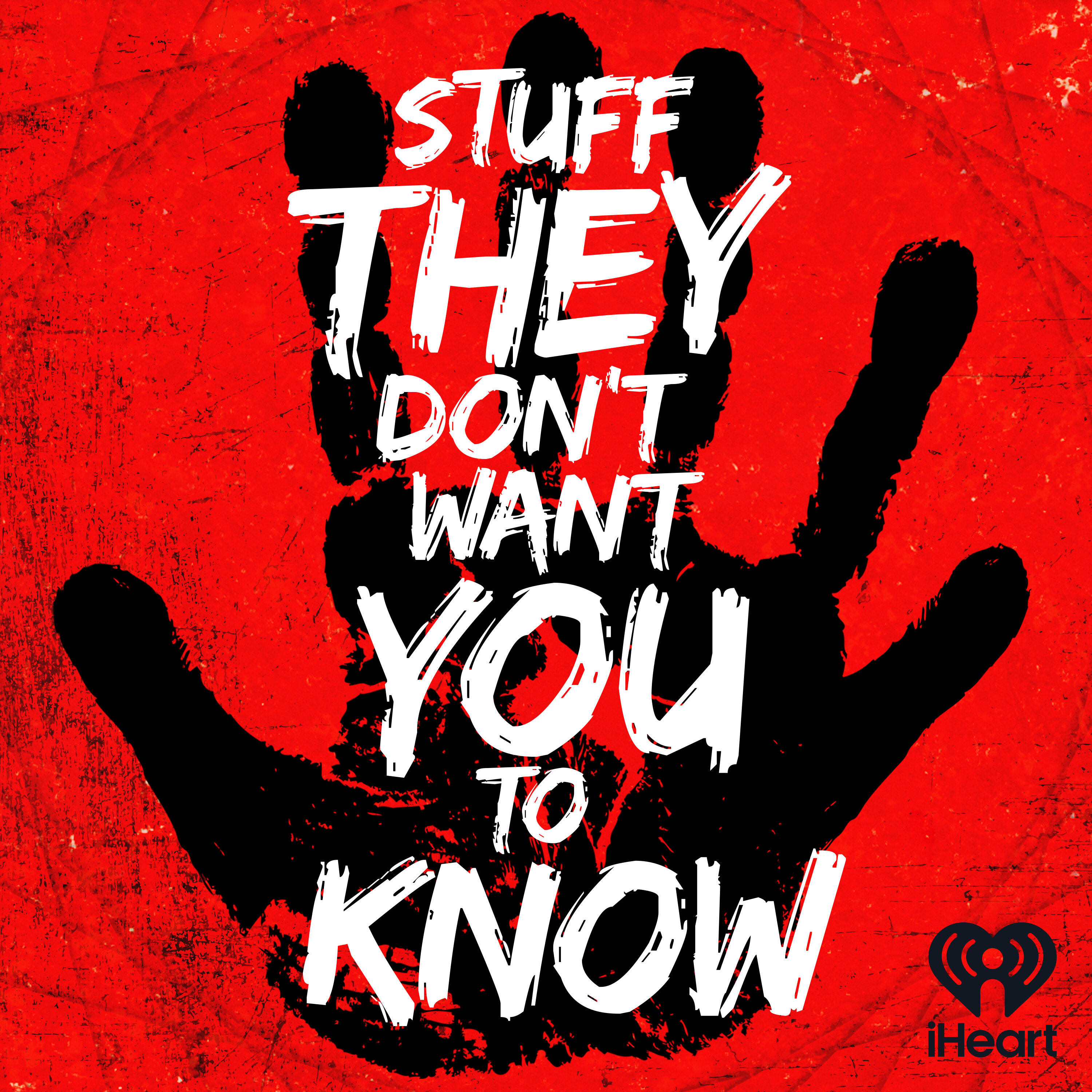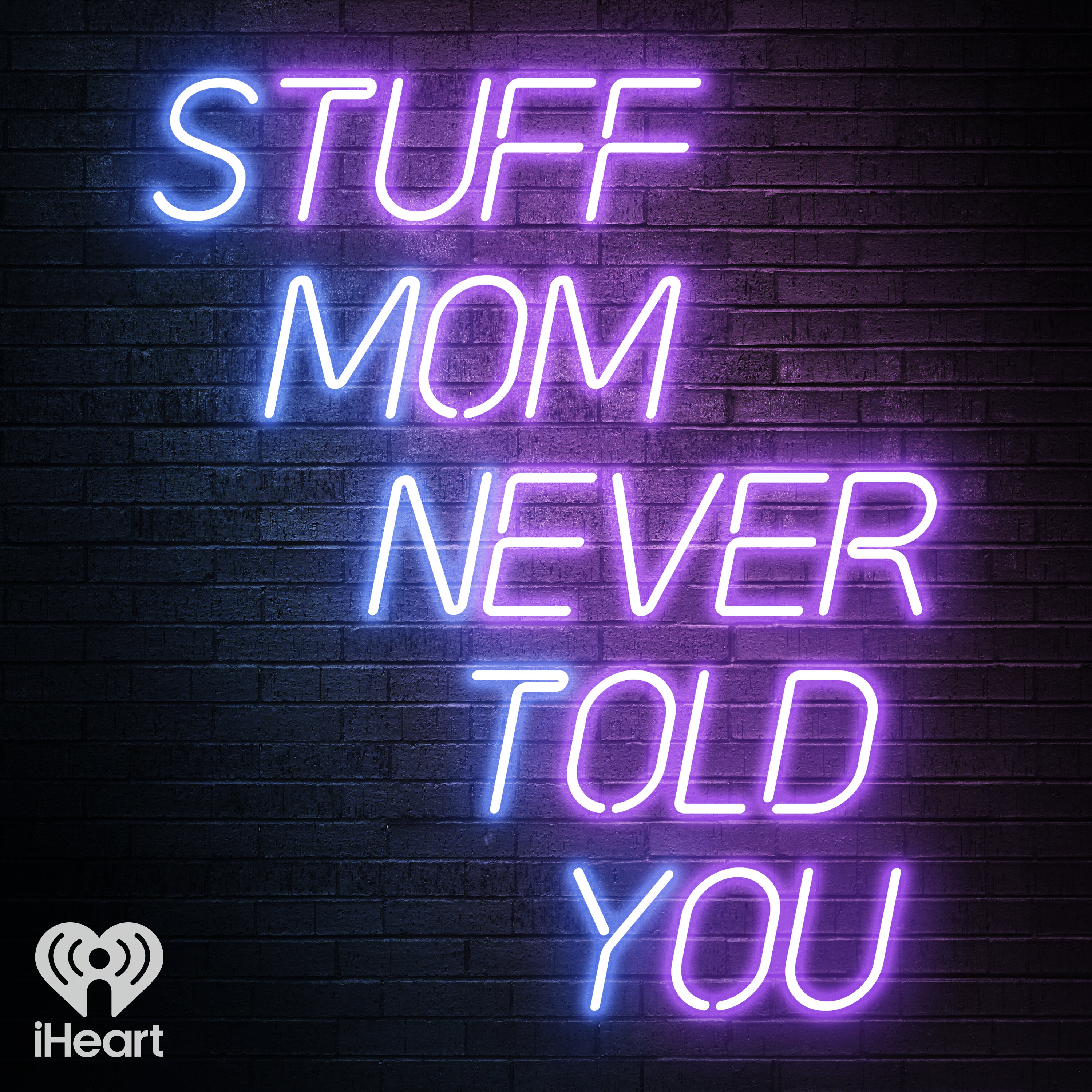
When Life Gives You Lemons
We do a bit of Research into handicapped travel issues and provide some solutions. Mobility, Hearing, Sight, Mental issues included. so far our episodes have included some information on Ataxia, Cerebral Palsy, Deafness, Dancing Sickness, Gulf War Syndrome, Long Covid and Wheelchairs. We are both Disability Advocates and realize there are too many diseases and conditions to cover and try to discuss the most common problems disabled people face and spread some awareness of disabled issues non-disabled people are unaware of.
CORRECTION
On a Previous episode I described how to enter our End Of Season contest. Step 1 click on the support our show link. Step 1 we require a one time payment (This has changed during our season) of $3. Step 3 (get you back to a one time payment) click on the $3 Subscription button. The following business day cancel the subscription (if you do it same day your bank may start thinking FRAUD. Step 4 Your done. Thanks for entering and "may the odds be forever in your favor",
When Life Gives You Lemons
From Cerebral Palsy to Tesla: A Year-End Review
Prepare to uncover groundbreaking insights and personal stories as we, Kevin and Palmi Henry, reflect on an extraordinary year of advocating for the disabled community on the When Life Gives You Lemons podcast. Join us as we share the emotional and transformative journey of navigating Kevin's battle with spinal cerebellar ataxia, while also exploring the advancements in brain implant research that's breaking barriers, including the potential to restore vision. Hear our heartwarming and often humorous take on the challenges and triumphs of disability advocacy, from celebrating Cerebral Palsy Month to raising awareness about Parkinson's Disease. We also tackle the timely and critical issue of holiday season fraud, especially the deceptive allure of AI-generated content on platforms like YouTube, ensuring you stay informed and vigilant.
This episode isn't just an update—it's a deep dive into the future of accessibility and inclusive innovation. Discover how ADA-like laws for airlines and a European carrier's pioneering cabin design could revolutionize air travel for wheelchair users, reducing damage and enhancing dignity. We'll share thoughtful, personalized gift ideas for friends and family with disabilities, highlight the importance of mobility options in vehicles like Tesla, and even bring you a laugh with an editing mishap involving Antarctica and Big Ben. Our mission is clear: to educate, inspire, and spark change in the world of disabilities, one story at a time. Join us for a heartfelt conclusion to the year, filled with passion, insights, and a commitment to a more accessible world.
https://youtube.com/shorts/rB8uFMEBxvE?si=KSkdDkogCIXE6cFd (King's Guards)
https://youtu.be/ZxjYE2xwqTc?si=W-mXnWSjgKlvNt1O (King's Guards)
https://youtu.be/8lTVYSW5Kt0?si=oxOZRbP_xP9P78tt (King's Guards)
https://youtube.com/shorts/BXsw6nNxj7k?si=XwXD18DQdSQ9zlBc
https://youtu.be/_rr0s4WwxTc?si=PogWHL4NzKqZv1ff
https://youtu.be/O5hR8W-kZmI?si=I3b9nG4rhJcDbTbt
https://youtu.be/xnkLv-PJVMo?si=MTDbcDw1Mb-rBjvd
https://youtu.be/3_jbmgILUR8?si=E_vtjFT_5MV9myEW (explains the entire Peanut the Squirrel saga)
https://youtu.be/nGeKSiCQkPw?si=VzDX_cKOEHwkMhjT (talking dog)
https://youtu.be/fHDs9_738r0?si=EcfmU3ejy33CNBz1 (Ford Pinto commercials)
https://youtu.be/SQEw8oXkrnY?si=fYncOzHSXvdae9ZX (highlights)
https://youtu.be/50puJl3PrEQ?si=JS3TE1CccPDDGSty (Opening ceremony highlights)
https://youtu.be/5hw3c78CvKs?si=oiEWRYkPGjqzIWgW (Closing ceremony highlights)
Fort McClellan: A Nightmare of Toxic Exposures in the U.S Military | Hill & Ponton, P.A.
Congratulations to Brenda for Winning our Season 2 Giveaway.
Welcome to our podcast with Life Disrupts. I'm Kevin Henry and my partner in crime, and life is Pommy Henry. I have a rare disease known as spinal cell viral ataxia, which is a neuromuscular disease. This has left me with mobility challenges, with a speech impediment and noise-induced anxiety.
Speaker 2:Living with these disabilities for over 20 years, we have developed helpful hints and life lessons that we would like to share with you. That has made our life easier and possible in some cases. We consider ourselves disability advocates and intend to educate ourselves and you about other disabilities and issues, and also talk about things we find interesting and frequently encounter when we're out and about. Welcome, kevin.
Speaker 1:Welcome, Mommy.
Speaker 2:This is the last episode of 2024.
Speaker 1:Yes, it is Welcome listeners. This is our podcast. When Life Gives you Lemons.
Speaker 2:So what are we discussing today?
Speaker 1:Well, I thought we could just go back over the episodes we've listed or we've recorded this season and if there are any things to update, we'll update them. Sounds good and the ones that don't have some. Well, I started out related to disabilities, but eventually I just got to random feel good or funny, or informative videos yeah, some YouTubes.
Speaker 2:That was entertaining you. Huh yeah, yeah, some episodes. There's no updates, so we'll just say there is no updates. Let's start with episode one of the second year.
Speaker 1:Episode one kind of relates to episode 11, and I have found a bunch of stuff that relate to episode 11, but let's not talk about that until we get to episode 11 so what was episode one sca there? Is no update on my ataxia. I'm still here, I'm still kicking, but nobody secured me yet or even really specifically diagnosed me yet.
Speaker 2:There you go.
Speaker 1:That's where it gets into episode 11.
Speaker 2:Okay, so then episode two of this year is Cerebral Palsy Month.
Speaker 1:I don't think I found anything new about cerebral palsy and I went straight into some videos. This is where I started adding videos because they're related to disability tours.
Speaker 2:So these are YouTube and it is related to the disability world? Then Correct, they might just get an ah out of it huh, yeah, okay, and the scene with episode three. Okay, and that was doing disability advocate work that you and I, from you and I, and then episode the Parkinson's disease.
Speaker 1:Which is well.
Speaker 2:We talk about Parkinson's disease, disease because it was parkinson's awareness week, our month yeah, I kind of referred to uh our last episode, episode 19, about the drooling implant in the brain.
Speaker 1:they started out only targeting uh spinal cord injuries and ALS. I'm not sure what those two have in common, but that's where they're going with it. The later added blindness is the default that Cyborg Eye at the last. They give updates on YouTube quarterly, so the last one is in October. I don't expect any new updates, but I think that the neuroscientists are going to like find things that are available, such as, like cerebral palsy, alzheimer's. A lot of brain conditions or diseases have a lot related to other brain diseases or conditions that can be fixed with the same.
Speaker 1:Yeah, if they learn how to make a person with Parkinson's reroute certain actions in the brain, it could have breakthroughs for All kinds of neurological. Aftoxia, als, cerebral palsy. That's why this is kind of listed there, because they've added blindness. I think that when we talked about it in October, it only had ALS and spinal cord injuries. Yeah, their trial goes, but they've added blindness just because-.
Speaker 2:There's hope, guys, there's hope.
Speaker 1:Well, it's kind of unique the way that the company is attacking this, whereas before it was just a bunch of doctors or neuroscientists doing research in clinical trials down periodically and the group includes everybody from data entry to engineers, to the neuroscientists. And in this case, you know, they probably said something like oh, we don't really have much progress other than what we've already gotten to with spinal cord injuries. We did have a couple thoughts on blindness. We did figure out what the brain expects to Receive, perceive as far as input goes, and they-.
Speaker 2:Are using it towards that end, then yeah, very good.
Speaker 1:You go out with the engineers and supposedly the data jury people, the people that handle files for their trials and stuff, and project managers and what have you? Again, if you're interested in any of their trials you see videos on your best bet is to go to their website and get their contact info and ask direct questions and get in touch.
Speaker 2:Sounds good. So the next episode was our episode five, and that was Fraud, fraud Everywhere.
Speaker 1:Yeah, at the time we recorded it it was just before the Paris Olympics, and he just take away the words we harped on, like Paris, or Olympics, or Olympiad, or Olympic Games or whatever, and substitute holidays. We're on holidays now Thanksgiving, black Friday, christmas.
Speaker 2:Cyber Monday, my favorite.
Speaker 1:Cyber Monday exactly, and one thing you should be aware of. What I'm seeing is a lot of people ethically post on YouTube using AI, and what I mean by that is there are certain AIs you can go to and just type text. It will reproduce a voice. That's people like me that have a medical condition and their speech is not the best, so they'd rather type, and those are usually your short informational videos, or they have heavily accented English because English isn't their first language. Again, they type that text in, but AI is produced, produced. If you go on YouTube and specifically look for this, you can find, like fan fiction, trailers of movies like the old cartoon, the Flintstones. They all say Flintstones Super 70s Version, pandavision, and if you look at the name, it'll be Somebody Studios. You're thinking, oh wow, they're making a Flintstones movie again and all this stuff looks surreal and that's the way it looks kind of too real. So it's AI? Yeah, it's.
Speaker 2:AI, ai generated.
Speaker 1:And a lot of these people will either disclaim at the very beginning via their audio or in the title where they've listed it on YouTube, they disclose it's created with AI. Some people are not so ethical in some videos you see elsewhere. I think YouTube requires they be ethical and say something about it. They're kind of not too strict on the audio. The audio. I guess. I don't recall people disclosing this audio as tight with the eye they could have, but some do, some probably don't.
Speaker 2:So, to sum it up, don't assume anything you see or hear is real or accurate. Online that would be correct. They're making false images and sounds and videos, and now it's easier than ever to use these tools. Just an average person could use these tools to produce fraud Correct.
Speaker 1:Okay and fun fact, some of the or just beyond the elections here, some of the campaigns candidates ran used AI-generated songs, images and well, actually both campaigns, I think, did this at one point, so just one did it more than the other.
Speaker 2:So episode six on our podcast was service dogs real ones, and that's where we discussed the difference between emotional support dogs.
Speaker 1:Some companies, charitable companies, are training service dogs for some emotional needs.
Speaker 2:Like PTSD.
Speaker 1:PTSD is a good one, because someone who has PTSD may have an attack on their home or even when they're asleep they may have a PTSD triggering dream. The dog is there picking up on Q's first PTSD and the dog has been trained on what needs to happen when a PTSD attack goes on. Sometimes it's just take care of your owner. Sometimes it requires more drastic action. He has to go get help. Sometimes there's a gimmick like the talking dog buttons Mm-hmm To distract him.
Speaker 1:No, they press on it and it's like an auto-dial it's hooked into a computer or a phone somehow, where it just tells, for example, 911 or the person's doctor, if you will.
Speaker 2:Very interesting. So that's the update on that one. Yeah, okay, episode seven was temporary disability. We discussed the differences between the two. Is there any updates on that one?
Speaker 1:Oh, there is a couple of specity. Measures need to happen, and because we just elected a new presidential administration, of course, constitutionally the US Congress controls the money. Us Congress controls the money. So what they're going to do is look at the ways they can save money by decreasing budgets or decreasing repetitive agencies when the new administration takes hold. And they're just. We just see how far that the administration that's in is going to dig this dead hole before they get into power, so to speak.
Speaker 2:So on your show notes here it says there's no updates for episode eight, which was mental superpowers or illness, and or nine, which was badges we don't need no stinking badges where we talked about disability who's gonna who's going to enforce the disability rules? And then also, uh, on episode 10, which which was Celine Dion and the stiff person syndrome, you don't have an update on her current condition. I've seen she's been singing quite a bit more.
Speaker 1:As part of her therapy, she sings, because singing is pretty much her life, her livelihood and all that. So that's part of her therapy is singing and making sure her voice is not going to let her down.
Speaker 2:Yeah, I saw she was singing at the Olympics. Yeah, she did.
Speaker 1:Actually, if you did not see the Olympic opening ceremony, she sang there.
Speaker 2:Yeah, all right. So the next episode was episode 11, vava crickets.
Speaker 1:Well, let's hold off for just a second. Eight, nine and ten is all kind of up in the air, if you will, because nobody is sure about budgetary issues or how the government programs will be affected by those, and that's why you know grants for research, all that stuff. We don't know where that's going to lead us to. So right now eight, nine and ten there wasn't any updates because it's all speculation, okay, well then we're on to episode 11, which is the va, va, va crickets.
Speaker 2:We talked about problems with the VA administration.
Speaker 1:Yeah, this is one that was. I've got a lot of notes in here from my own personal use.
Speaker 2:I just wrote a blanket statement that Congress had an inquiry into the VA after our episode.
Speaker 1:It turns out they displaced a huge amount of money that they couldn't account for and Congress wanted to know why. And they started off when they had the VA secretary testify, just giving the standard VA runaround, you know VA Madden search, things that nobody understands. But the VA and Congress got really upset because they said— they couldn't account for all that money.
Speaker 1:You're missing the point. You're missing like a ton of money and you're trying to teach me how to speak Klingon. Basically, I don't care how to speak Klingon, I want to know where the money's going be Klingon. I want to know where the money got. I want you to get all these terms you're trying to teach me out of your mouth. Tell me where the money went. Well, through whistleblowers, and this is something that veterans have been speculating about for a while. They have kind of like three tiers in the VA.
Speaker 1:They have those like what you would call the super executives, like the VA secretary and you know a cabinet position, you know people that decide things for the VA, people that administer departments of the VA, and then you have, you know, obviously, people that like input data, process claims etc. Process claims, et cetera, and the people that are at the executive level, like the department head level, to get these enormous bonuses by saving money. How does the VA save money, would you care to guess?
Speaker 2:No, I have no idea. I don't have the VA math.
Speaker 1:Denying benefits.
Speaker 2:Ah, yep, that makes sense, and so it's yeah, it's good.
Speaker 1:They accounted for some money, but they were giving bonuses to executives is why there were so many billing charges. Okay, so apparently these were large bonuses.
Speaker 2:For saving money. What basically lost the money? Yeah, yeah, and then you wanted to make a note about we have an update on being stationed at Fort McClellan.
Speaker 1:Yeah, Fort McClellan is where I was stationed for OSUT. It had. Let me just say this for the record the VA didn't want to give this to me, but I went on a lawyer's website who sued the company that did this, the chemical company that lived.
Speaker 2:It was in Alabama where you were stationed there. The chemical company that lived. It was in Alabama where you were stationed. There was a chemical company and a plant there.
Speaker 1:Condemnated all the water supply. For the whole town, but for the whole area.
Speaker 2:Community.
Speaker 1:And they had a class action suit for the community. The GIs were not included.
Speaker 2:Nor were we informed of any such thing. You were never sent anything that says you might be exposed to something or anything legal issues.
Speaker 1:Lawyers typically have legal publications that they have to notify and since I spent so long in a NATO environment with no US support, I did not receive any notifications about bases that were closed for toxic exposure. I did not receive VA updates, the Army Times or Stars and Tribes. You know things that normally soldiers overseas see on a daily basis. Well, I was lucky if I saw those once a week. I was in the Army from 1979 on.
Speaker 2:Oh, I understand what you're saying, but you were in the NATO unit during that, 1985 through 1995. Right, okay, got it. And then episode four, another you just decided to show us YouTube highlights of the Paralympics, is that correct?
Speaker 1:Yeah, yeah. I have three different videos One of just highlights of just amazing moments during the Paralympics, and then one for opening ceremonies and one for closing ceremonies.
Speaker 2:And that was episode 12, Paralympics upcoming.
Speaker 1:Yeah, and if you did not watch the Paralympics, I do recommend these videos. If you watch the Paralympics, I mean, obviously you're not going to be as impressed if somebody has not seen these type things before.
Speaker 2:Okay, on to episode 13, was ADA-related laws.
Speaker 1:Yeah, the ACAA, which is like the ADA for airlines. There was some exciting news about this and that the company that makes cabins for the interior of airlines has a deal with one airline in Europe and is in talks with the FDA, the FAA and the various airlines about doing something similar in America. So it's kind of a wait and see what comes about. The European airline that uses this I believe it was British Airways. It was somewhere in the UK. They might have like offshoots of British Airways that are commuter jets.
Speaker 2:And what's the advancement on it? You haven't mentioned that yet. Well, they are kind of weird.
Speaker 1:I haven't mentioned that yet. Well, they are kind of weird. But what they did is they took business class, which is I've got you supporting airlines. They'd have first class business class in economy, just first class in economy, and on those you pretty much go in through the door onto the airplane, if you will, in first class, and walk back to wherever your seat is. And you have to have a certain amount of space for this. You have to have, basically, like a room.
Speaker 2:Okay. That's what segregates the two. Right Separates the two.
Speaker 1:I think there may be enough room in the combine if they use the first row.
Speaker 2:So are you saying that you can use your wheelchair? You can come on the plane with your wheelchair and they strap the wheelchair down Exactly.
Speaker 1:It's like the system where you watch you come in and, instead of using the wheelchair to go back to where your seat is and transferring it to the seat and putting on the seatbelt, removing your chair. It's like a bus.
Speaker 2:Strap you down, tie you down, kind of like our conversion van, or it just pulls in.
Speaker 1:They can connect to the bulkhead where the seat was. They remove the seat. That would really eliminate any damages being caused by wheelchairs being shipped underneath in the carrier area and I'm not going to lie, I'm one of those people I really have been trying to avoid flying simply because I've got a perfect record and I don't screw it up every single time.
Speaker 2:they have just literally destroyed my wheelchair yep, that lead led into delays and stuff like that for us too. Okay, so now is the perfect time for episode 14, which was feeling generous. You gave some ideas of items that you thought would be useful if you had a disability.
Speaker 1:Yeah, I didn't realize the items, and, of course, there are some people out there that are way more creative than I can be, so use your imagination, way more creative than I can be. So, you know, use your imagination. The key thing is to either talk to somebody's parents if they're, you know, a child Find out the sort of things they need before you go and spend a whole lot of money on.
Speaker 2:it Sounds good. We're on to episode 15. In your show notes you wrote great news. What's the great news?
Speaker 1:That which we just talked about.
Speaker 2:Oh, I'm sorry that was for the ADA.
Speaker 1:Yeah, okay, so 13 to 15 is kind of the same.
Speaker 2:Okay.
Speaker 1:I get excited about that here in the US again, we're not Because of the pending governmental transfer. I'm not hearing a lot of you know facts, but maybe some speculation. You know, right now the incoming administration is trying to name cabinet members and get a jump on getting her briefing from the outgoing administration. And her briefing from the outgoing administration made the transition easier than it has been in the past, more efficient than it has been in the past.
Speaker 2:And on episode 16, London, Antarctica, really.
Speaker 1:You have to explain this. I just wanted to explain the joke that we were in on. Okay so explain it okay. You have to understand that when you're editing I usually have headphones on and things are a lot more pronounced pronounced than they will be if you're just blasting them over. Speakers on the computer.
Speaker 2:So he came to me with great concern because I was moving my mic while I was talking and it sounded like lots of wind and that reminded him of Antarctica. And then at some point I must have hit my boom and I had a big gong, twice, remember. It was like 2 am.
Speaker 1:Oh, is that what it was? They'd been it was like 2 am.
Speaker 2:Oh, is that what it was? Big Ben said it was 2 am and see, this happens while you're doing recordings. We forgot to turn off our cuckoo clock and he's over there cuckooing, so it's hard to edit this stuff out. So if you get weird noises, that's what, so try to remember where you were before that happened. Just do it, Just go with it, Okay. Hence, it was a joke that did not land. Apparently no one had. People were asking questions about what we were talking about, right?
Speaker 1:Well, I think so. Yeah, I mean, I thought you know people were going to see the weird thing, the weird episode. You know it's like oh, I hear the wind.
Speaker 2:But when we heard it in our car we usually listen to it in our car we didn't hear any of the noises we were so upset about. So he will endure to improve both his editing skills and his sense of humor. Okay, so episode 17 was Didn't have anything. No, no updates. The name of it was Brawnability, respect and Wisdom, wheelchair Wisdom Just common courtesy stuff that we thought people should know about when you see somebody with a disability.
Speaker 1:Now one thing I did find out about mobility in general is like you can, if you so desire, get on an accident. Ask Elon Musk directly if they have any plans to market a vehicle that can be adopted for disabled travel. But a lot of people with just plain straight up mobility issues. They're not in a wheelchair. They can use cars, they can modify a Tesla to use hand controls and in sedans, provided you don't have a lot of passengers, there's room to like take your wheels off and stud your real chair inside so you don't have to like go put it in the trunk. I imagine if you have passengers that want seats and all that, you can do that because they can help you do that Right. In this case, people who are just commuting to and from work by themselves or with one other passenger. They have a whole other backseat. They can just toss stuff in the back.
Speaker 2:Yep. Okay, that leads us on to episode 18, Cherish Memories and Life's Little Joys. We did a little test to see how well we knew each other and talked about the stress that being in a relationship when you're having a disability leads into your life and stuff like that.
Speaker 1:No, we did not no updates In our relationship backwards.
Speaker 2:We're still married. Yeah, no updates there some videos about many younger music fans listen to our age's music and see what their reaction was. So he's got quite a few on there.
Speaker 1:One of the things that I've noticed is that YouTube in general has made several prominent musicians or band members or vocal coaches or somebody involved in the music industry. It's been like only in the industry since Past the 2000s Past the 2000s, if you will, 2000s, if you will and they were just completely blown away when you pick up a 70s or 80s band. Some of the 80s band were been around since the 70s. They just didn't get popular until the 80s, sort of thing, and even though they were popular in the 80s the guys thing and even though they're Robin and the 80s, the guys that have been in the industry for the past 20 years, since 2000, have not really heard of them If it's not a genre they enjoy or, typically less, work with or listen to.
Speaker 2:So you gave them a little bit of video so they can see the reactions.
Speaker 1:They make quite a bit of reaction videos Somebody who's not heard this type of music.
Speaker 1:usually the way it went is usually if there is a foreign band that sings in a foreign language, they take some American or Americans and expose them to the music, like Rammstein or you know, Some of the bands that actually perform live and have showy concerts or flashy videos, but it's in a foreign language so they don't really get it, or get the lyrics, they don't get the story, but they talk about the production value of their concert, the quality of the music, I mean that's non-language dependent.
Speaker 2:Okay, and so we're on to 19. I think it's a little more of what you just talked about. You have YouTube videos on there for them to click on. Enjoy. Yeah, eventually I ran out of themes.
Speaker 1:You have YouTube videos on there for them to click on and enjoy. Yeah, eventually I ran out of themes. They're not really pertaining to things we discuss on our podcast, but they're things I thought might be a welcome distraction or a welcome tidbit of information, if you will.
Speaker 2:And also let's make a note that Season 3 will begin on March 5th of 2025.
Speaker 1:And basically it's going to be similar to the season in that we are going to give something away. We just haven't decided what yet.
Speaker 2:And we're going to explore maybe a little larger not maybe disability, going to other things too. Stay tuned so you can see what's coming next year.
Speaker 1:Possibly updates on things we couldn't update because it'll be in a year. The speculation on what programs are being reduced or increased will be Current. Yeah, that'll be current info.
Speaker 2:Okay, we're going to say goodbye now and see you next year talk to you later, folks.
Speaker 1:Hi, everybody's kevin. Our end of season wonder is brenda. I've already contacted her and made arrangements to ship this. Thank you for listening and thank you for the support throughout our whole season. I also want to give a special thank you to the Accessible Go business and community for allowing us to access their community site and ask their community members as well as post some updates as to where our podcast is going. Thank you again.
Speaker 2:We are always looking to improve the podcast, so if you want to hear a specific topic, have a differencing opinion or to add something to the conversation, drop us an email. Our contact information is listed on our website. It's wwwwhenlifegivesyoulemonsnet. We have recently added a companion YouTube channel called Making the Lemonade. If you enjoy the podcast, continue your enjoyment by joining us on YouTube.












